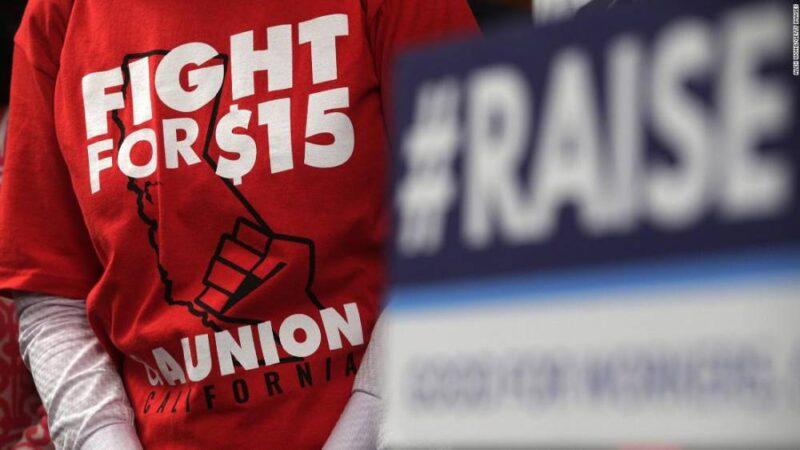Pamela Loprest is a senior fellow and labor economist in the Income and Benefits Policy Center at the Urban Institute. The opinions expressed in this commentary are her own.

The Biden administration has called for an increase in the federal minimum wage to $15 an hour as part of its emergency Covid relief package. This increase is long overdue — the federal minimum wage hasn’t changed in over 10 years since it rose to $7.25 in 2009. If it had kept up with inflation, the federal minimum wage would be at about $11 an hour. Currently, 29 states and the District of Columbia already have higher state minimum wages than the federal $7.25.
Evidence shows that a graduated increase of the minimum wage to $15 an hour would move families out of poverty, reduce labor market inequities and boost local economies. Raising the minimum wage will not fix all the problems facing workers earning low wages, but it is one part of a set of needed changes that can make the labor market more equitable.
Research suggests previous increases in the minimum wage played an important role in closing racial wage gaps. Although a higher minimum wage could lead to some job loss, studies, such as one from the Congressional Budget Office, predict losses would be modest, especially in comparison with reductions in poverty. The study estimates that raising the federal minimum wage to $15 an hour would result in the loss of 1.4 million jobs, but it would increase wages for 27 million workers (including some earning just above the minimum wage) and lift 900,000 people out of poverty.

A $15 minimum wage would hurt those it's meant to help But low pay is just one issue for these workers. Low-wage jobs are less likely to provide employer benefits, such as health insurance, retirement plans and paid leave. They come with greater safety and health risks than higher-paid jobs. In addition, people of color and women are disproportionately likely to hold low-wage jobs due to longstanding inequities that deny them the chance to equally participate in, and reap the benefits of, the American economy. Addressing these inequities will take many forms. Federal, state and local governments need to consider new legislation and regulation that can address mandating employer benefits and workplace standards as well as providing access to benefits outside of employment. Additionally, voluntary efforts by employers to increase job quality can be aided by customers, government contract providers and others creating incentives for employers. Read MoreThe pandemic has highlighted and exacerbated the many challenges facing workers in the lowest-wage jobs. Many essential workers earning low pay — including grocery clerks, delivery workers and meat packers — face exposure to Covid-19. In some instances, access to personal protective equipment or hazard pay has been inconsistent or non-existent. And some low-wage workers who got sick or were exposed to Covid-19 did not have paid leave to take time off to take care of themselves or health insurance to pay for testing.In addition to facing increased exposure to the coronavirus, many low-wage workers in sectors hit hard by pandemic lockdowns, like hospitality, have lost their jobs. But many of these workers continue to fight for a minimum wage increase and job quality improvements. Restaurant workers are advocating to get rid of the tipped minimum wage (employers are allowed to pay $2.13 to workers receiving tips) and to increase the federal minimum wage to $15.
Increased attention to these issues during the pandemic has led to some positive, if temporary, changes. Some employers did provide some relief in the form of hazard pay, overtime and paid leave, for example. The federal government’s emergency response also extended paid leave to some workers impacted by Covid-19. This could lead the way to more permanent changes.The problems with low-wage jobs existed even in the booming pre-pandemic economy, and they will persist in the post-vaccination economy. A minimum standard of job quality is critical to improving the labor market for all workers, and that standard includes a higher minimum wage.
Source: edition.cnn.com

